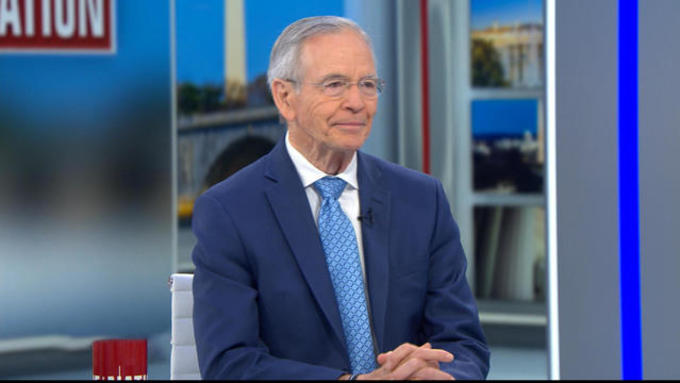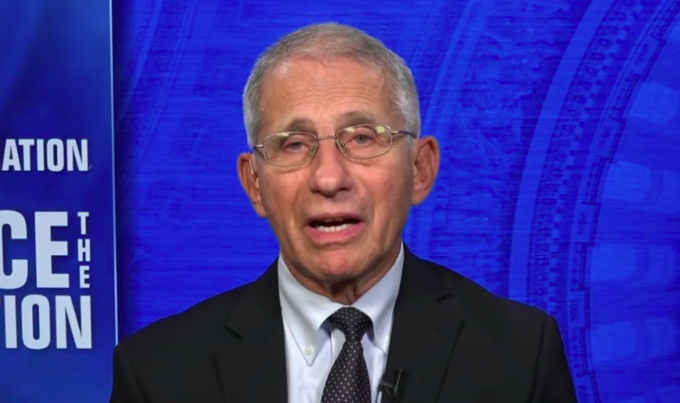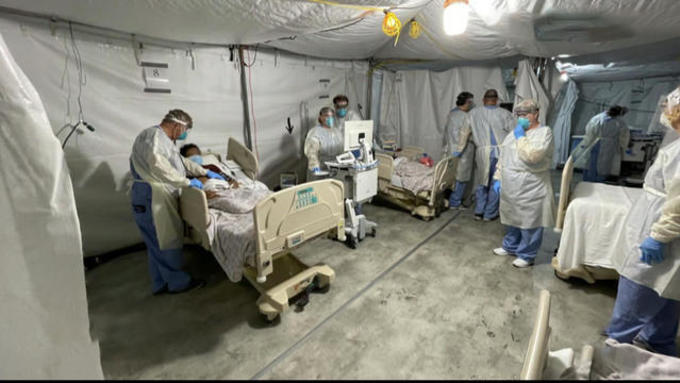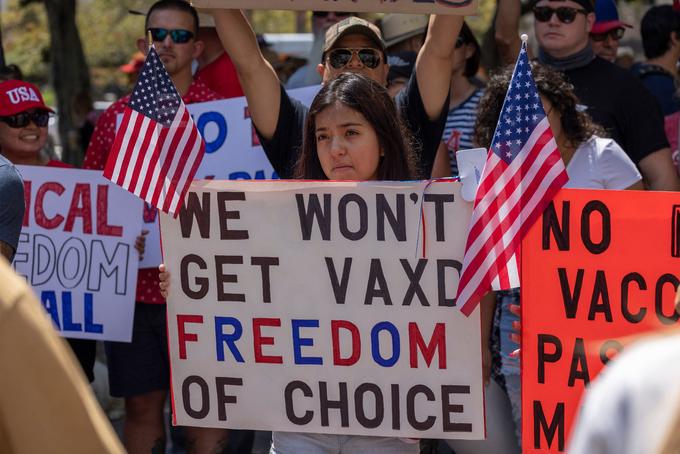| "This is President Biden's Saigon moment. And unfortunately, it was very predictable. It seems like many in President Biden's intelligence community got this devastatingly wrong." - Representative Steve Scalise, Republican of Louisiana, on President Biden's responsibility for Afghanistan's fall to the Taliban
Welcome to the "Face the Nation" Five at Five newsletter. Scroll down for your five takeaways from today's broadcast of "Face the Nation" on CBS. Did someone forward you this? Sign-up at cbsnews.com/email. 1. U.S. ambassador leaves embassy for Kabul airport as Taliban moves in 
The U.S. ambassador left the embassy in Afghanistan and decamped to the Kabul airport on Sunday.
"Everybody is surprised by the speed of this collapse," CBS News senior national security correspondent David Martin said Sunday. "And I'll bet the Taliban are just as surprised. They must be pinching themselves right now at the speed of this Afghan collapse." Martin said the federal government is on track to have every American citizen, U.S. diplomat and U.S. military service member out of Afghanistan by August 31, "if not sooner." Martin predicted that by the 20th anniversary of 9/11 "the Taliban will be back in power." Watch Martin's reporting on the Taliban's advance in Afghanistan. 2. Taliban faced little resistance in rout of Afghan forces  CBS News senior foreign correspondent Charlie D'Agata said that when he visited Afghanistan just last month, "the government had control of most of the country and all of the provincial capitals." D'Agata said "it soon became clear" that the Taliban "takeover of Kabul itself was inevitable." The most dire intelligence predictions from Washington warned that Kabul could fall within one to three months. That was just one week ago, and the Taliban has now taken control of the capital. Watch D'Agata's reporting on the Taliban's rapid advance toward Kabul after capturing Afghanistan's provincial capitals. 3. Fauci says COVID-19 surges "entirely preventable," urges vaccinations 
White House chief medical advisor Dr. Anthony Fauci said recent COVID-19 outbreaks in states like Mississippi and Louisiana are "entirely predictable, and yet on the other hand, entirely preventable."
What we asked: In Mississippi, cases have risen by more than 2000% in the past month. Medical officials there say that the state's largest hospital system could fail within days. What is the federal government doing to help states like Mississippi and Louisiana? What he said: "We're sending surge teams to help with the actual implementation of the immediate response, and that's FEMA, that's CDC people, that's people from the assistant secretary for Preparedness and Response, to help setting up to provide some treatment like monoclonal antibodies to help with the hospital situation. That's the immediate thing. All of this is entirely predictable. And yet, on the other hand, entirely preventable. We've got to get people vaccinated. We have about 90 million people who are eligible to be vaccinated, who are not vaccinated. And that's very highly concentrated in the southern states, including Mississippi and other states in which you have, compared to the general average of vaccinations in the country, an under vaccinated group. And those are the people in whom the outbreak with a highly, highly transmissible Delta variant is spreading. And it's really tragic because we're seeing a lot of people get seriously ill. And as you've shown, the hospitalizations are on the brink of actually overrunning the hospitals, particularly intensive care units." 4. COVID-19 hospitalizations skyrocket across U.S.  As COVID-19 hospitalizations continue to rise, over 77% of ICU beds are filled across the U.S. Last month, the number of COVID-19 patients 18 years old and younger tripled, with nearly 100,000 kids testing positive for the virus in the last week. CBS News' Mark Strassmann reports from Georgia, where 88% of ICU beds are in use and COVID-19 hospitalizations continue to rise. 5. CBS News poll: California's vaccinated say unvaccinated are adding risk; strong support for mandates  As Californians express widespread concern about the Delta variant, they overwhelmingly say the state's recent rise in cases was preventable, had more people gotten vaccinated and taken more precautions. California's vaccinated voice a lot of judgment toward the unvaccinated: "They're putting people like me at risk" is a top way the fully vaccinated pick to describe those who won't get the shot, with many others outright "upset or angry" with those unwilling to get it. From a policy standpoint, there's strong support for vaccine mandates, too. Meanwhile, as the effort to recall Governor Gavin Newsom heads into its final month, Newsom faces what looks like a turnout challenge: while voters would marginally prefer to keep him in office at the moment, it looks like that will heavily depend on whether Democrats get more motivated about getting out the vote. |
No comments:
Post a Comment